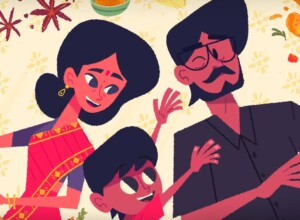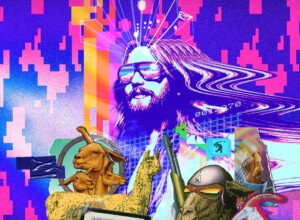Cut Scenes is Josh Wise’s regular examination of the intersection between video game and film. This time, it’s Hitman 2: Silent Assassin and Ripley’s Game.
The first time we see Agent 47, the hero of Hitman 2: Silent Assassin, he is picking tomatoes. That isn’t a euphemism; I don’t mean to suggest that he is, in fact, squelching the heads of his foes with a high-powered rifle. He really is picking tomatoes. And why not? He’s retired, after all. Following the events of the first game, Hitman: Codename 47, we find him in Palermo, tilling the soil and having his soul tended by Father Emilio Vittorio. 47’s home is humble, scarcely more than a garden shed, on the grounds of a church. When Father Vittorio is kidnapped by the Sicilian Mafia, 47 is forced back into old habits. His skills, we soon find, have not withered on the vine.
For Tom Ripley, the hero of five Patricia Highsmith novels and a string of movies, there can be no retirement. This is because his abilities, like 47’s, are not the sort to grow blunt; because there is nothing to retire from, Ripley being perennially at his own lethal leisure; and because, as is the case with 47, there are always people willing to coax him back into play. We find him, in Ripley’s Game, portrayed by John Malkovich. He is also in Italy – not in the charring heat of Sicily but in the Veneto (the thigh-high part of the boot), which the director, Liliana Cavani, dresses in a range of fogs and dull-white skies, bruised by the occasional downpour. Ripley made a killing from the sale of some Old Master drawings (the meeting involved a briefcase, a gun, and, in a nasty supporting role, a fire poker), and now lives in a grand villa with his wife, Luisa, a harpsichordist.
Naturally, she knows nothing of her husband’s inclinations toward violence – how, like her favoured instrument, he is easily pressed and highly strung, capable of slipping off-key at the slightest provocation. Ripley kills those who insult him or offend his taste. He is, as he explains in one scene, “a gifted improviser.” This description is a perfect fit for 47, who dons disguises on the fly, sliding into dark suits and, in one mission, pale-blue overalls, posing as a deliveryman. It is the first level in Hitman 2, entitled “Anathema,” and the first time in the series that 47 is acting out of anger, trying not only to rescue a friend but to wreak a little vengeance on his captors. His task is simple: infiltrate a mafia fortress, the Villa Borghese, spring Father Vittorio from his cell, and assassinate Don Giuseppe Guillani – who likes to drive golf balls from his balcony.
Compare the scene in Ripley’s Game, where our hero and his acquaintance, Jonathan, are holed up in Ripley’s Villa, as it’s besieged by mobsters. It’s a nice inversion, with 47 prowling along terracotta eaves and sliding through windows like a draught; while Ripley lines his doorways with bear traps, testing them by prodding baguettes between their teeth. Each man is alone. 47 is unaccompanied on his mission and unadorned with friends; Father Vittorio is described as a “mentor,” and his handler, Diana, is only helping him in exchange for a couple of gratis kills. Ripley, meanwhile, is allied with Jonathan not via friendship but a far stranger force. They are neighbours, and, during a dinner party, Jonathan makes a joke at Ripley’s expense. Thus Ripley, quietly enraged, decides to entangle the poor fellow, who has terminal leukaemia, in a morass of murder and dirty money. He offers the man a large sum, in exchange for slaying a Russian criminal, and Jonathan, eager to leave behind some money for his family, takes the job.
“Why did you pick me?” Jonathan asks, in a blubbering rage. “Partly because you could,” Ripley says, “partly because you insulted me, but mostly because that’s the game.” I love that line. It speaks to Ripley’s sense of life as something to be played and won, its rules slyly skirted or broken; he has forged a temporary team with Jonathan, to better his odds, but their partnership is fleeting. There is a lovely hint of Highsmith in the Hitman games – in its hero’s knack for manipulating others into doing his sanguine work for him. Think of “Curtains Down,” from Hitman: Blood Money, the mission in which he must dispatch a famous tenor during a performance of Tosca. The most delicious tactic available is to replace a prop gun with the real thing, and watch the show as one of the actors becomes an unwitting subcontractor.
Ripley would adore that, I think: the way it conceals a gruesome art within a beautiful one, melding performance with life – and death. Ripley’s Game ends with a performance of its own. Luisa is seated onstage in an amphitheatre, playing to a hushed crowd, as Ripley leans against a column and smiles. There is no ugliness here. The grim deeds have been done, and the present moment is there to be savoured. As Ripley watches, he is met with visions of Jonathan, and of the armed thugs from their shared episode. He isn’t troubled by these flashes, more lightly puzzled, as they mingle with the notes on the night air. It’s a brief reminder that his game is never done. Just as 47 scours the villa, finds Father Vittorio absent, and prepares to take up his previous calling, Ripley knows that his work will go on. For both men, art and life will never part. Curtains up.












